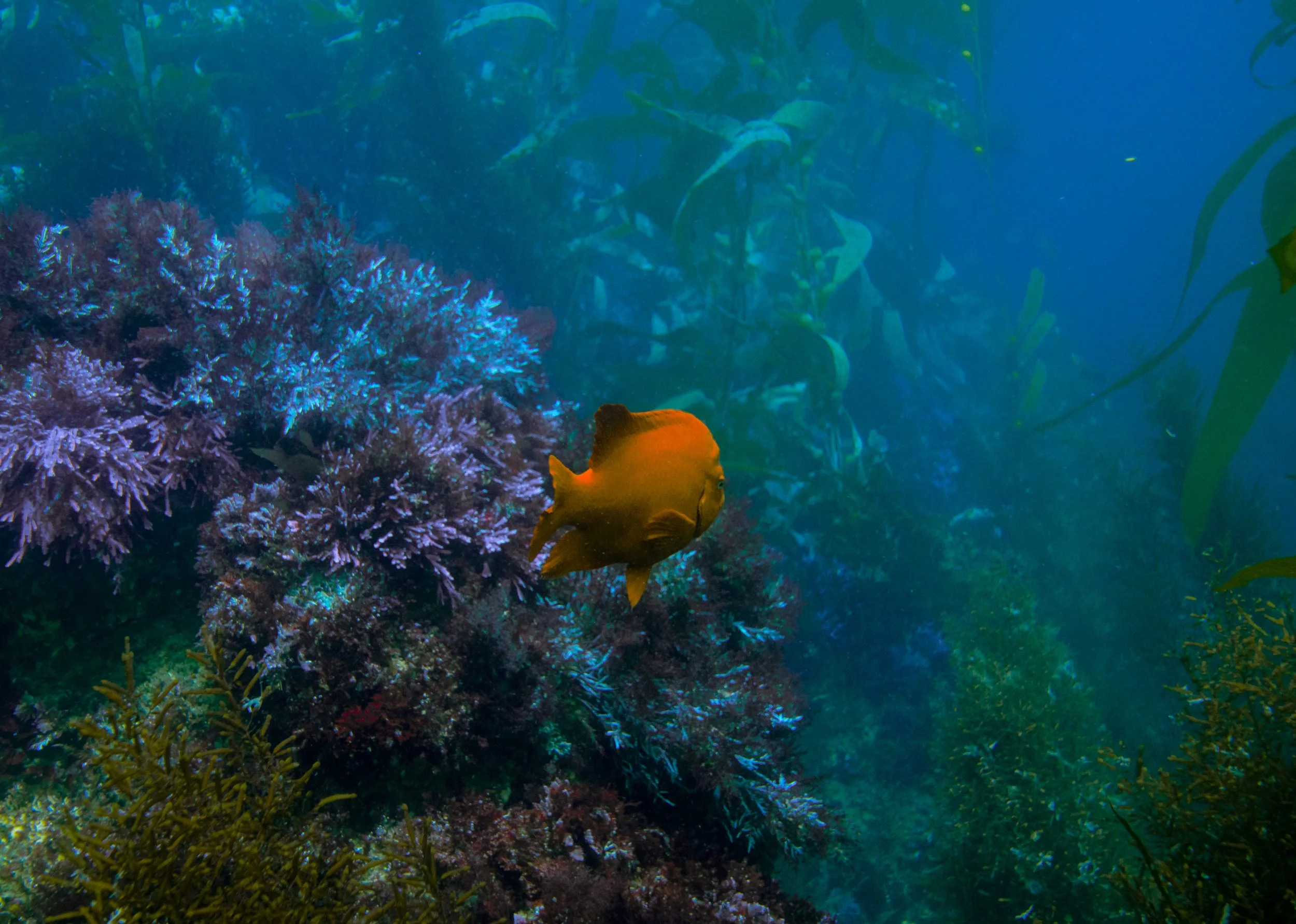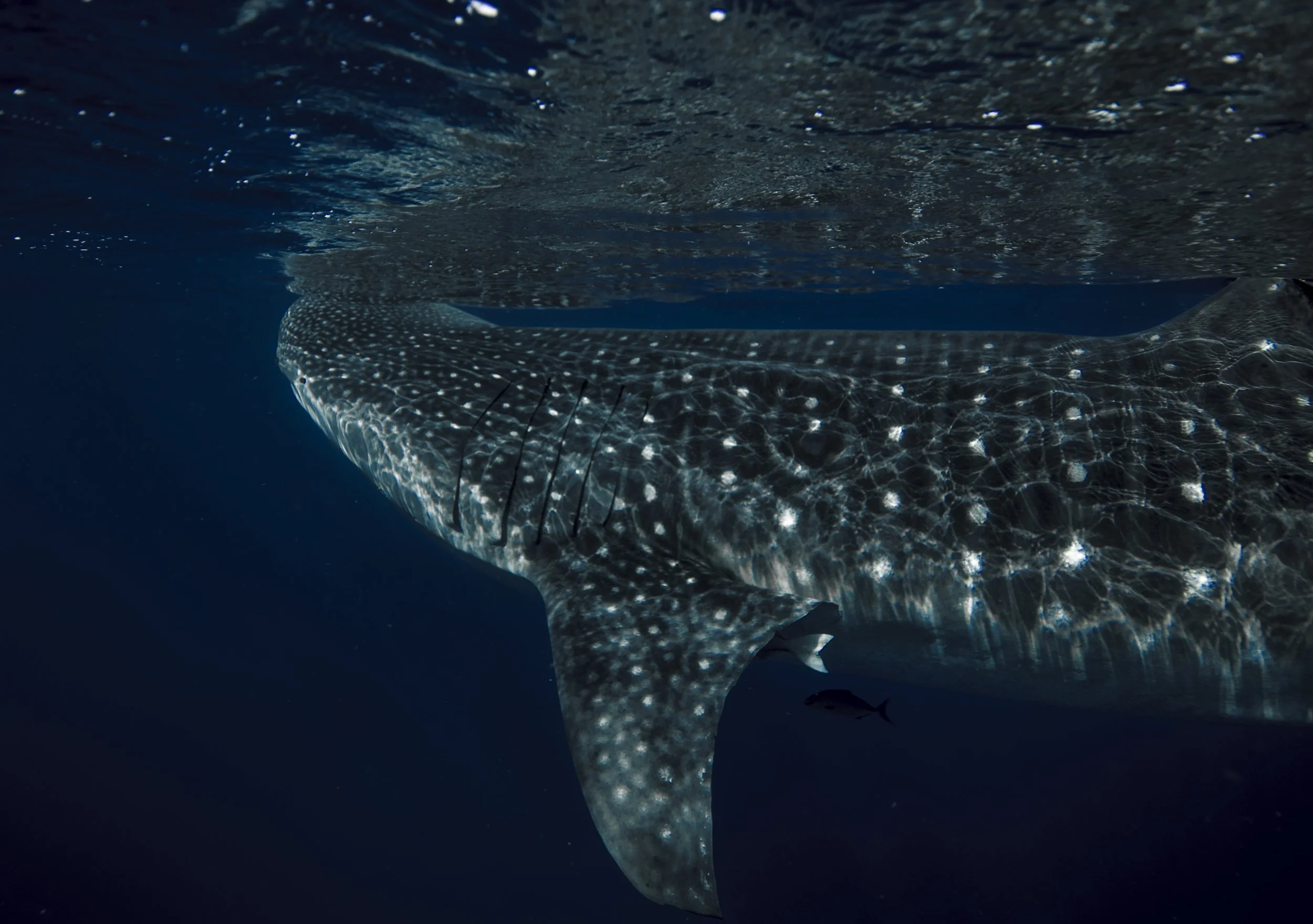Why Our Oceans Matter And How You Can Help.
The ocean is the heartbeat of our planet. It covers over 70% of Earth’s surface, generates more than half of the oxygen we breathe, regulates climate, and provides a home for nearly a million species.
Photo by: Hannah Gabrielson
Despite its immense importance, the ocean is under relentless threat from plastic pollution, overfishing, deep-sea mining and climate change. World Ocean Day is on June 8, it’s a critical time to reflect on our role in both the damage and the healing. In his powerful new series Oceans, David Attenborough reminds us that while the ocean is resilient, it is not invincible. From dwindling fish stocks to coral reef collapse, the show delivers a sobering yet hopeful call to action: if we act now, we can still protect what remains. This World Ocean Day, let’s celebrate the beauty and power of the sea and commit to meaningful change, starting with our everyday choices.
Photo by: Hannah Gabrielson
10 Ways to help the ocean:
1. Reduce Single-Use Plastics to Combat Ocean Pollution
Plastic waste makes up nearly 80% of all marine debris, and while single-use items like plastic bags, bottles, and straws are a serious problem, the majority of ocean plastic actually comes from the fishing industry. Discarded nets, lines, and traps known as "ghost gear" that continue to kill marine life long after they're lost. Adding to this crisis is fast fashion, which sheds microplastics through synthetic fabrics like polyester and nylon every time we do laundry. These tiny fibers wash into waterways and accumulate in the ocean, harming marine animals and entering the food chain. Reducing your plastic footprint by avoiding single-use plastics, refusing fast fashion, and speaking out against industrial fishing is one of the most powerful steps you can take to protect our oceans.
2. Support Marine Conservation Organizations
Marine conservation organizations are at the forefront of defending the ocean. These nonprofits work to create marine protected areas (MPAs), fight illegal fishing, restore coral reefs and kelp forests, and advocate for stronger environmental protections. Supporting them through donations, social sharing, volunteering, or activism helps amplify their work and builds global momentum for healthier oceans. From grassroots coastal cleanups to international policy change, these groups are making a real impact and you can be part of it.
3. Protect Coastal and Marine Habitats
Coastal ecosystems like mangroves, seagrass meadows, salt marshes, and kelp forests are essential to ocean health. They act as nurseries for marine life, buffer coastlines from erosion, and store vast amounts of carbon, making them critical allies in the fight against climate change. These habitats are rapidly disappearing due to development, pollution, and warming waters. You can help by supporting habitat restoration projects, respecting no-go zones when visiting the coast, and advocating for the protection of these blue carbon ecosystems.
4. Advocate for Ocean-Friendly Policies
Real change happens at the policy level. Electing leaders who prioritize ocean protection and supporting legislation that bans bottom trawling, expands marine reserves, regulates industrial pollution, and holds polluters accountable are all vital steps. You can also advocate locally, contact your representatives, sign petitions, and attend community hearings. Your voice, your vote, and your social reach can influence decision-makers and protect marine ecosystems for generations to come.
5. Reduce Carbon Footprint to Fight Ocean Acidification
The ocean absorbs roughly 30% of all CO₂ emissions, making it a major buffer against climate change. This absorption causes ocean acidification, weakening coral reefs and shell-forming organisms that are e ssential to marine food chains. Reducing your carbon footprint by biking or walking, using renewable energy, avoiding air travel, and eating a plant-based diet helps lower CO₂ emissions and slows acidification. Every choice adds up.
6. Join Local Cleanups to Stop Plastic at the Source
Ocean pollution begins on land. Rain and wind carry plastic waste from urban areas into rivers and storm drains that empty into the sea. Community cleanups intercept this waste before it reaches the ocean. Whether you’re collecting trash from a beach, lake, riverbank, or city sidewalk, you’re directly protecting marine life. Organizing or joining a local cleanup is also a great way to educate others and inspire collective action.
7. Avoid Products and Experiences That Exploit Marine Life
Many souvenirs and consumer products fuel the destruction of marine ecosystems. Coral jewelry, shell trinkets, fish-based supplements, and cosmetics made with shark-derived squalene contribute to unsustainable harvesting and marine biodiversity loss. Equally harmful are marine parks, aquariums, and swim-with-dolphin attractions, where animals are confined, exploited, and deprived of their natural behaviors. Choose plant-based alternatives and support ethical, cruelty-free businesses. When you say no to exploitation, you're voting for a thriving ocean.
8. Educate Others About Ocean Conservation
One of the most powerful tools for protecting the ocean is raising awareness. Talking to friends, sharing credible information on social media, and supporting ocean education initiatives helps spread knowledge and shift culture. Whether you host a community event, post an infographic, or teach children about the importance of kelp forests, you contribute to a ripple effect of environmental literacy. Informed people make better choices for themselves and the planet.
9. Support Regenerative Ocean Farming
Regenerative ocean farming, particularly seaweed, is one of the most exciting climate and ocean solutions available. These farms require no fertilizers or freshwater and actively improve water quality, capture carbon, restore habitats, and provide nutritious, sustainable food. Supporting products made with farmed kelp and advocating for funding for regenerative aquaculture, contributes to an economy that heals rather than harms the sea.
10. Adopt a Vegan Lifestyle to Protect Marine Ecosystems
The fishing industry is the single most destructive force impacting our oceans. It causes overfishing, habitat destruction, and mass bycatch of unintended species including dolphins, turtles, and seabirds. Abandoned fishing gear, called “ghost nets”, makes up the majority of large plastic pollution at sea. By choosing a vegan lifestyle, you eliminate support for this industry and reduce your environmental footprint dramatically. It's one of the most effective ways to protect marine biodiversity and promote ocean recovery.
We Have A Favor To Ask…
Species Unite amplifies well-researched solutions to some of the most abusive animal industries operating today.
At this crucial moment, with worldwide momentum for change building, it’s vital we share these animal-free solutions with the world - and we need your help.
We’re a nonprofit, and so to keep sharing these solutions, we’re relying on you - with your support, we can continue our essential work in growing a powerful community of animal advocates this year.





